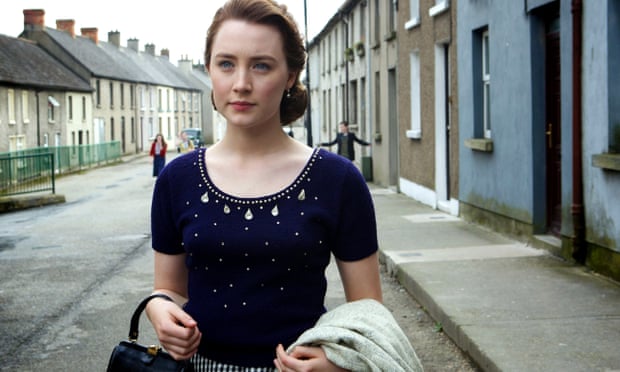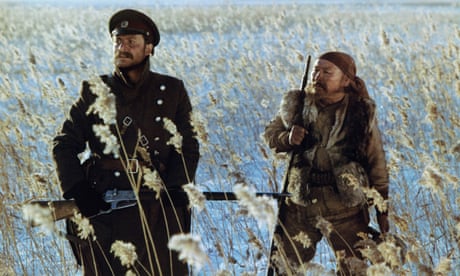Top 10 homecomings in fiction
Top 10 homecomings in fictionon Apr 08, 2021

With lockdown stretching on, one thing my friends and I are quietly admitting to each other is that we feel homesick. Homesick for life as it was, of course, but also for the places we can’t return to anymore. The ones we didn’t even realise were still “home”: the countries where we were born, the cities where we grew up, the villages we couldn’t wait to leave.
Homecomings are complex, particularly when you’re an immigrant or child of immigrants. It can be difficult to tell where home is, for a start – and then when you get there, it isn’t. My novel, Fragile Monsters, began as an attempt to understand what home would have meant to my family in Malaysia during the second world war and the subsequent Emergency. In writing it, I found myself fascinated by how much our concept of a home relies on memories and stories, rather than bricks and mortar.
The following books offer intimate, startling perspectives on homecomings: some that celebrate it, some that examine the challenges and others that question the nature of what it means to return.
1. Friend of My Youth by Amit Chaudhuri This novel is a love letter to Bombay (now Mumbai), but a specific, very personal Bombay constructed from the narrator’s memories. Amit, a character created simultaneously from the writing and the life of Amit Chaudhuri, makes several returns to Bombay. The city changes each time and Chaudhuri gives us the sense that Bombay itself is constantly experiencing a homecoming of its own. The protagonist’s one constant, Ramu – the titular friend – is absent for the first half of the book and this absence lends a depth and poignancy to this elegiac novel.
2. The Penelopiad by Margaret Atwood Atwood’s novella centres on the ultimate homecoming: Odysseus returning from his travels. Told from the perspective of Penelope, the story unpeels in a wonderfully comic, dark manner to consider just what such a return might have meant for her. Penelope’s ambivalence towards her husband and her stoic acceptance of how her own behaviour is going to be scrutinised show us the flipside of this joyous homecoming. A Greek chorus formed of 12 of Penelope’s maids – whom Odysseus slaughtered on his first day back – provide a distinctly macabre touch.
3. A Bit of Difference by Sefi Atta Atta’s third novel, set in 90s London and Lagos, is a beautiful exploration of home, modern identity and belonging. The protagonist, Deola Bello, comes from a family of “Nigerian Tories”, as Atta wryly puts it: rich and influential relatives who can’t understand why she refuses to come home to Lagos. Bello is equally an outsider in London, where she feels disconnected from the fractured Nigerian community and unable to explain her longings for shared roots. A beautiful, incisive story of what it means to take home with you when you go.
4. The Garden of Evening Mists by Tan Twan Eng This novel unfolds in two timelines, each containing a homecoming of a very different emotional weight. After the Japanese occupation of Malaya in the second world war, Yun Ling returns from her time in a prison camp to commemorate her sister’s death by creating a memorial garden. More than 30 years later and dying of a degenerative disease, she returns to the same garden to make peace with the life and the worlds she’s losing. Tan’s restrained, polished prose highlights the poignancy of both these homecomings, and provides some beautifully cynical political commentary.
5. The Family Clause by Jonas Hassen Khemiri Khemiri gives us a grandfather returning to his family in Sweden, a poignant image neatly undercut by the revelation that this is only to avoid a tax liability. The peripatetic (and nameless) grandfather is an infuriating, engaging character, stubbornly insistent on his role as the family patriarch despite his absences. His equally nameless children – two living and one dead – present their own tangled stories of familial love and duty, at times echoing their father’s intransigence. The dynamics of each relationship are superbly complex, and Khemiri’s wry, comic touch gives a lightness to the inevitability as the children follow in their father’s footsteps.

6. The Return of the Native by Thomas Hardy Hardy’s novel begins with a homecoming, but not the one of the title. Tamsin Yeobright has been betrayed by her fiance (this is, after all, Hardy) and is coming back to her rural home in disgrace. Her cousin, Clym, on the other hand, is renouncing his glamorous life for a labouring job nearby. Throw in some jilted lovers, cheating spouses, snakebites, card games and torrential thunderstorms, and these homecomings are beginning to look like a decidedly bad idea. Hardy, who originally wrote this novel as a serial, has a fine mastery of the art of the cliffhanger.
7. Homegoing by Yaa Gyasi Homegoing is a dazzling, fractal spin of a novel, with homecomings repeated on varying scales throughout. Spanning nine generations of a single family, Gyasi’s debut traces the journey from Ghana to the US and back again. Within this structure, each generation has their own returns home to deal with: from prison, from slavery, from loneliness and self-enforced exiles. The sheer sweep and grandeur of this story is complemented by Gyasi’s impeccable prose, which brings the reader eye to eye with the minuscule, memorable detail of the characters’ lives.
8. Love, Etc by Julian Barnes In this sequel to Talking It Over, Barnes explores what happens after a divorce when chickens – and ex-husbands – come home to roost. Told in impeccable, sparse prose, this evolution of the characters from Talking It Over is a wonderful study in how life can tarnish the soul. When Stuart returns 10 years later to visit his coupled-up wife and best friend, the old rivalries, jealousies and loves resurface. Barnes uses a multiplicity of unreliable narrators to interpret his central question: is a homecoming a return, or – as one of the characters says – just the start of another story?
9. Brooklyn by Colm Tóibín The homecoming in this novel isn’t until near the end, and has been gloriously and precisely foreshadowed by the time it arrives. Tóibín pulls the threads of the story tightly together when protagonist Eilis Lacey returns from her glamorous life in New York to her home in rural Ireland. This novel explores what coming home might imply for old affections and what happens when these come into conflict with new loves. Instead of a straightforward homecoming story, Tóibín chooses instead to explore the implications of regret and the duty we feel to those left behind.

10. Housekeeping by Marilynne Robinson Gilead would be the more obvious Robinson pick for the theme, but her debut, Housekeeping, has a luminous intensity of its own. Sylvie, a transient drifter, moves back to the town of her childhood to look after her orphaned nieces. The town, Fingerbone, becomes central to the story as Robinson traces a link between Sylvie’s lack of roots and Fingerbone’s chilly isolation. There’s an inevitability to Sylvie’s repeated absences and a beautiful contrast between how the two nieces respond to her drifting. The writing is heartbreaking, the setting bleak and the last paragraph of the novel very close to perfection.
Source: theguardian.com


.jpg)






.jpg)

.jpg)
.jpg)
.jpg)
.jpg)
.jpg)
.jpg)










Sorry! No comment found for this post.